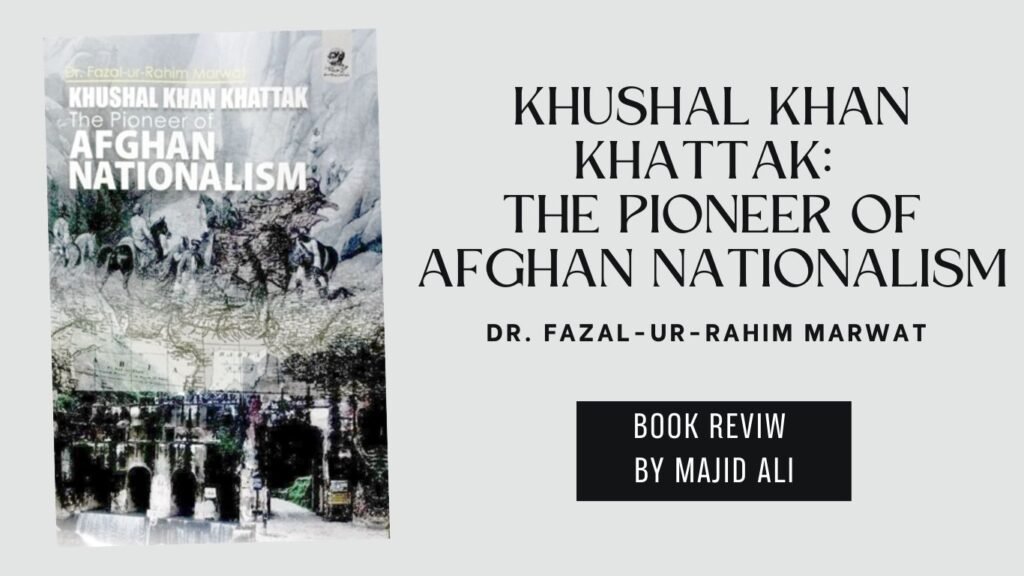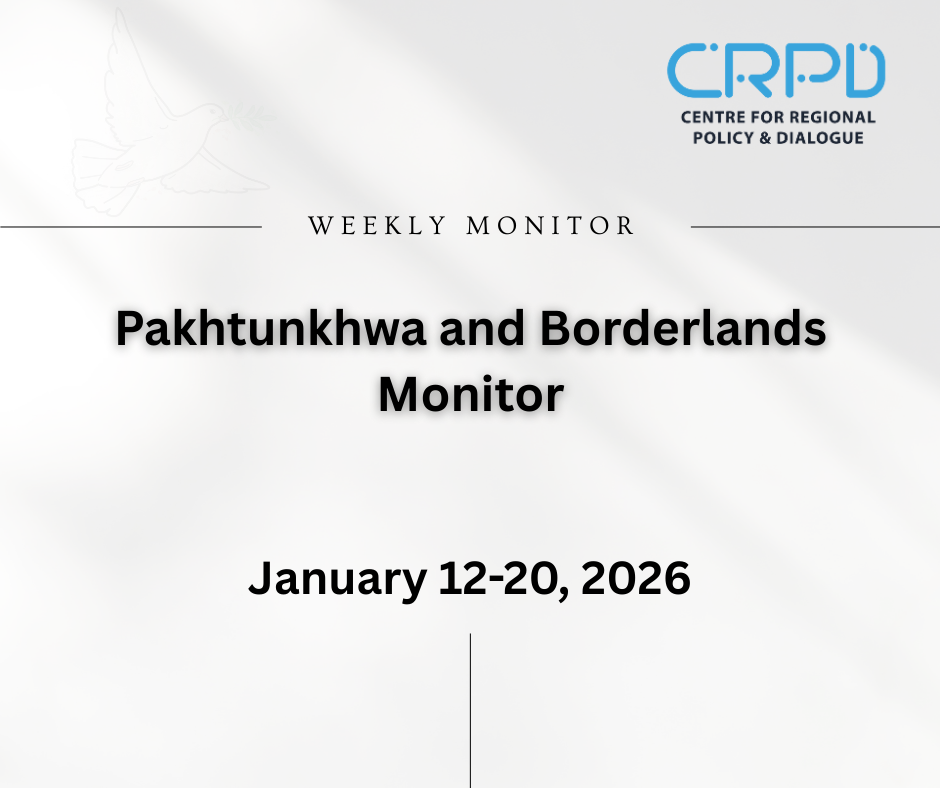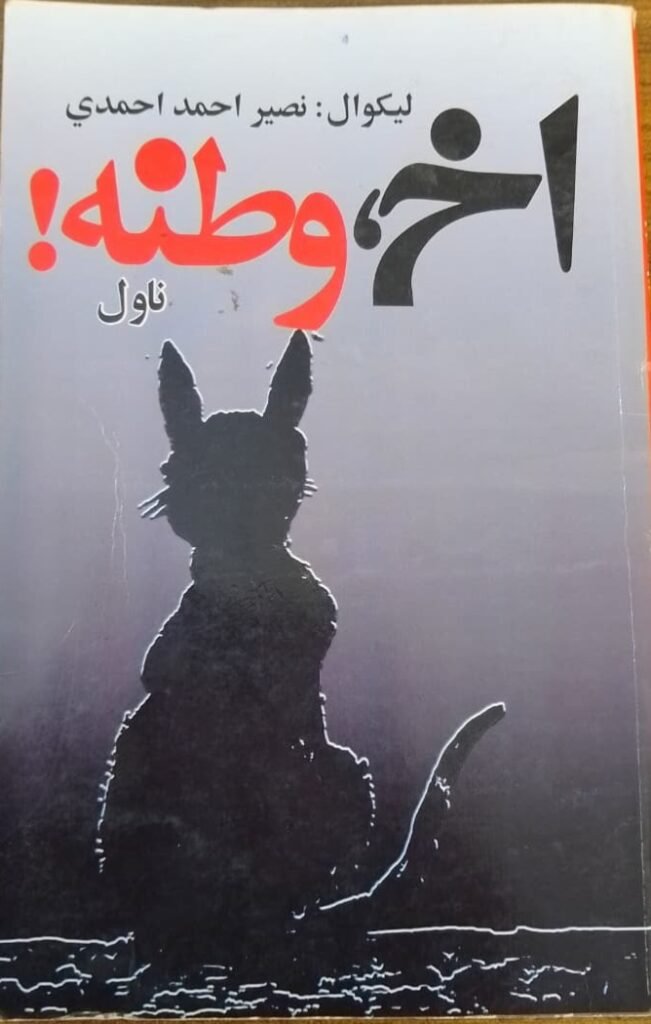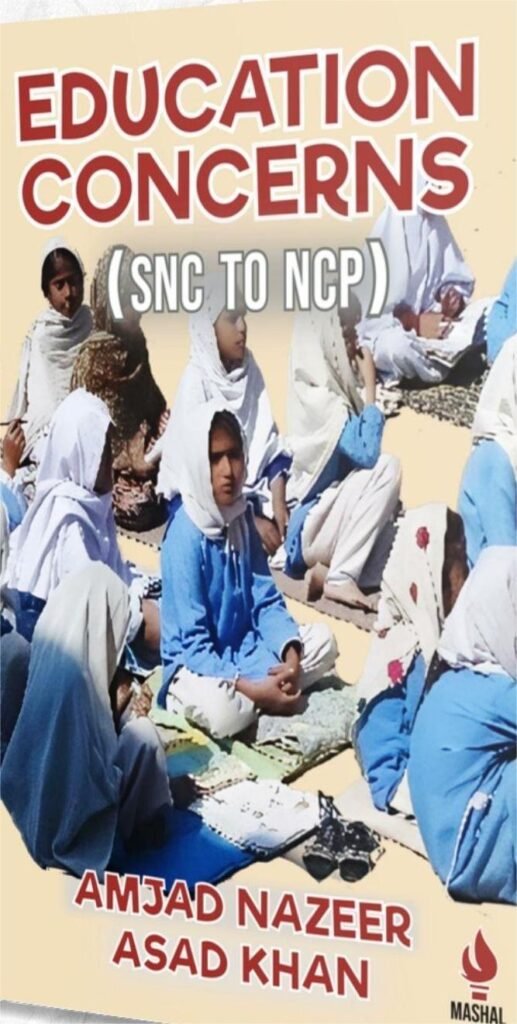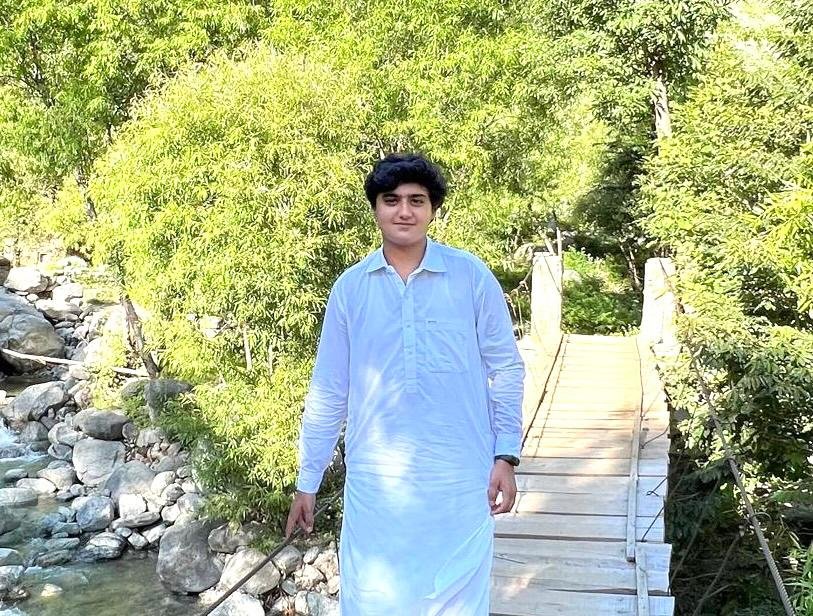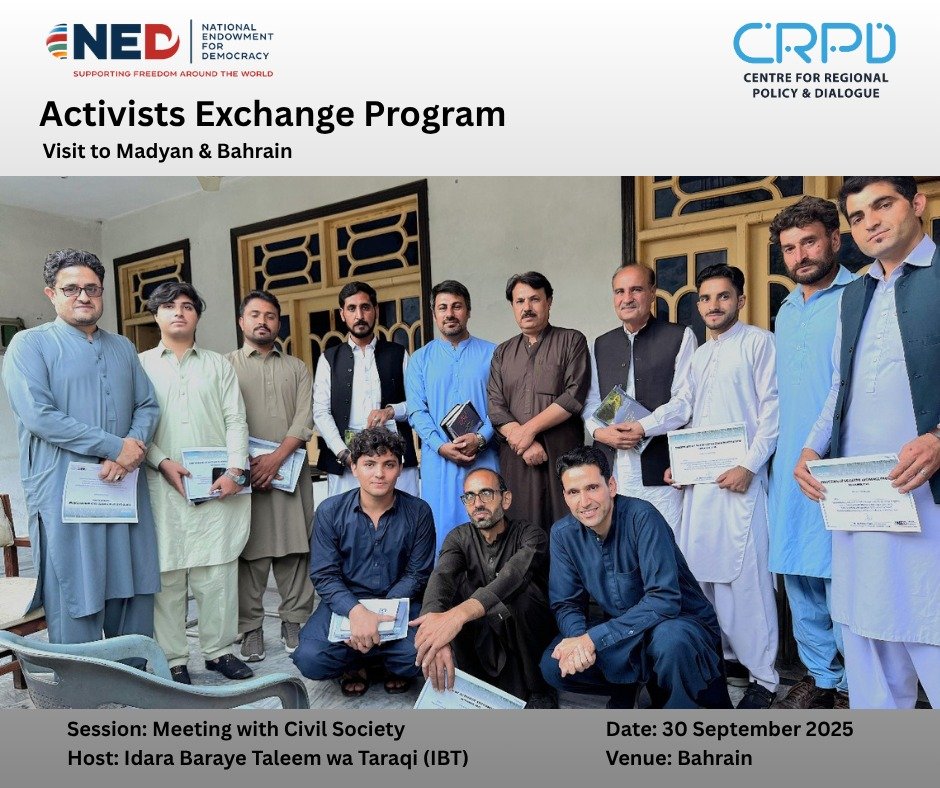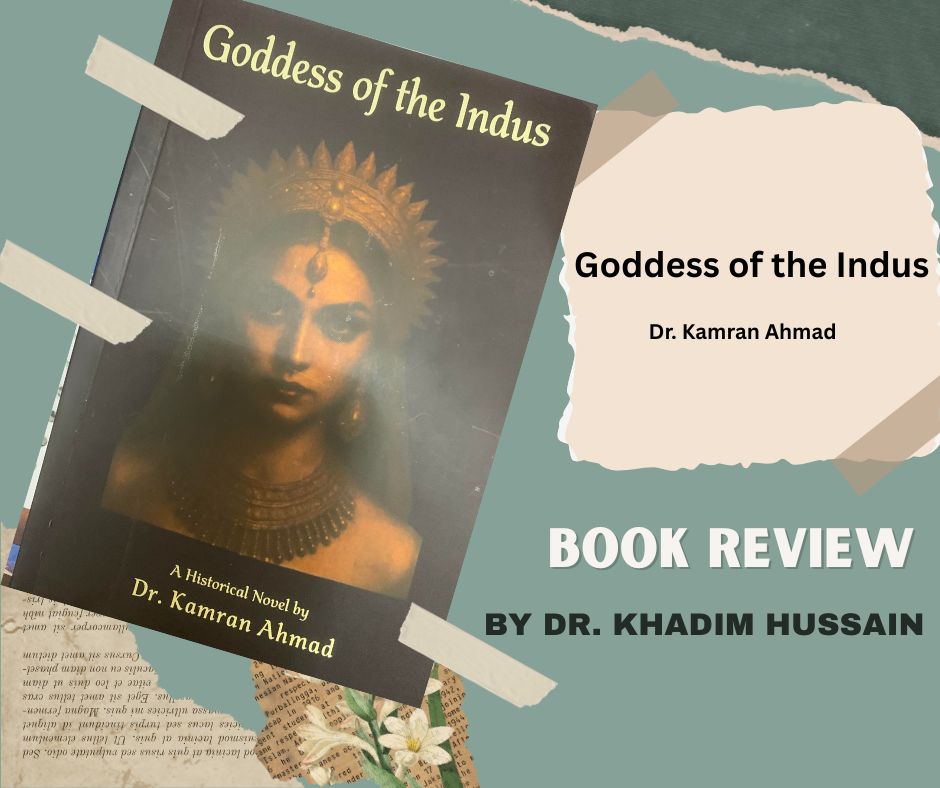Book Review by Majid Ali
Bacha Khan Research Centre, Peshawar, publishes books every year on various subjects including politics, history, literature, folklore, anthropology, and many other. One of the most interesting works, published by Bacha Khan Research Centre Peshawar in 2022, that I have come across recently, is “Khushal Khan Khattak: The Pioneer of Afghan Nationalism” by Dr. Fazal-ur-Rahim Marwat, the former Vice Chancellor of Bacha Khan University, Charsadda.
Khushal Khan Khattak (1613-1689) has left behind a treasure trove of knowledge and a world of literature but he is not yet completely explored by the Pashtuns. However, some efforts have been made to explore some aspects of Khushaliyaat, a discipline names after Khushal Khan Khattak. Some of the worth mentioning works in the field of Khushaliyaat include the first PhD thesis by Khadija Ferozuddin at Punjab University, Lahore. It is believed that Allama Muhammad Iqbal advised Mrs. Khadija to conduct research on Khushal Khattak. Other worth mentioning books include eminent Pashtun scholar and literary critic Dost Muhammad Khan Kamil Mohmand’s works “On a Foreign Approach to Khushal Khan Khattak” and “Swanih i Khushaal” (autobiography of Khushal) in Urdu language.
This research work by Dr. Fazal-ur-Rahim Marwat, “Khushal Khan Khattak: The Pioneer of Afghan Nationalism,” stands out in the row of the most authentic and great works ever produced in the field of Khushaliyaat. The forewords written on the book by prominent Pashtun nationalist leader and former President of the Awami National Party, Asfandiyar Wali Khan, former senator and Pashtun intellectual/politician Afrasiab Khattak, historian Syed Wiqar Ali Shah Kakakhel, and professor Dr. Yar Muhammad Maghmoom also provide insights and understandings into the book and the field of Khushaliyaat.
The book contains a total of four chapters. The first chapter deals with the life and personal traits of the genius Khushal Khattak where the writer describes the childhood incidents happened with Khushal, his expeditions for the Mughal empire when he was a Mansabdar (an officer) of the Mughals empire, his imprisonment by the Mughal king Aurangzeb Alamgir, and the post-prison life of the Great Khan. The writer has also shed light on the education of Khushal, his adventures, and political life. Dr. Marwat has relied on authentic sources for references for the work.
The second chapter highlights Khushal’s narrative and approach for the re-awakening of his nation and his love for the homeland. The writer tells us how Khushal has used his mother tongue Pashto as a tool for politics and for the re-awakening of the Pashtun nation. The writer quotes prominent Pashtun scholar and writer Qalandar Momand who is of the opinion that “Khushal Baba is the first in the known human history to use poetry for a nationalist cause and raised pen to the status of the sword. He is the first to use poetry, art, and literature consciously for politics and used it for the welfare of his people and nation.”
He further says,
“Pashto is the first language which, because of Khushal, was used for objective (purpose) oriented literature. It was because of Khushal that Pashto gained national character.”
Khushal introduced new fields of knowledge to develop Pashto language and raised it to new heights of knowledge. Khushal liberated Pashto poetry from mystical themes and religious dogmatism and laid the foundations of secular thought. He almost left no theme untouched which was prevalent during his times and shed light on diverse and numerous subjects, both in poetry and prose. He wrote on politics, literature, sociology, anthropology, medical sciences, hunting, love affairs, wars, and many more. Khushal proudly confessed and acknowledged his services to Pashto language as he said:
“کۀ د نظم کۀ د نثر کۀ د خط ده
پۀ پښتو ژبه مې حق دے بې حسابه”
Translation: I have a great right over Pashto language,
whether it’s of prose, poetry, or script.
The author argues that Khushal contributed more than 70 books in poetry and prose on different subjects but many of the books were not printed at that time and are not available nowadays. The writer quotes various couplets of Khushal Khattak that shows his struggle for the re-awakening of consciousness of nationhood in the Pashtuns.
Khushal defines the national geography of the Pashtuns and tries to connect and reawaken the Pashtun consciousness as he says:
“درست پښتون له کندهاره تر اټکه
سره يو د ننګ پۀ کار پټ او اشکار
پۀ يوه ژبه وئيل سره پښتو کړو
ولې هيڅ نۀ شو له يو بل خبردار”
Translation:
All Pashtuns from Kandahar to Attock are one and the same,
overtly and covertly in respect of Naang (sense of honor).
Though we speak the same language Pashto,
but we are unaware of one another.
The third chapter of the book highlights Khushal’s struggle for the re-awakening of Afghan/Pashtun Nationalism. The author believes that a sense of distinctiveness was introduced to Pashto poetry by Roshanites but Khushal refined it, polished it, and brought it to a new light. However, some scholars are of the opinion that Malak Ahmad Khan is the founder of Afghan Nationalism, who in 1520 created a Pashtun state and named it Pakhtunkhwa. Fazal-ur-Rahim Marwat didn’t mention him in this book. Whatever is the case, Khushal Khattak rose with a clear head, defined demarcation of the Pashtun geography, called on his nation to shrug off tribal feuds, to organize and unite against the Mughal imperialism for the sake of Afghan honor (naang). He was the first to use his pen and sword both against the Mughal rule and for the unity and re-awakening of his nation.
Khushal raised his nationalist flag at a time when nationalism in Europe had not yet emerged. The author says that Khushal was born in the wrong place—in a tribal society where the message of nationalism was not heard by the masses, and hence Khushal didn’t succeed the way European society absorbed the message and succeeded on the stage of the world. Khushal understood the strength that comes from the people and their collective will. He believed that the people were the real source of power and the rightful rulers of a nation. He challenged the powerful Mughal Empire courageously, a true rebel of his time. Khushal knew that the people’s power could build or destroy a society and a nation. He longed for a battalion of brave soldiers, as he wrote:
کۀ مې چېرې ننګيالي پۀ لاسو کښېوځي
پرې به لرې دا زما د زړۀ ارمان شي
و مغل وته به هسې چار ښکاره کړم
چې راځي راسخه روح د فريد خان شي
Translation: If I get hold of chivalrous honorable men,
that will fulfill my dream.
And will show to the Mughals such like deeds,
that the soul of Farid Khan (Sher Shah Suri) will become joyous.
He emphasizes the unity and collective power of the people by saying:
“اولسونه چې سند يو تر بله وکا
بادشاهان ورته سجود کاندي اختيار”
Translation: When the people decide for unity,
All the kings bow before them.
Khushal was a true democrat and believed in consultation as he says:
“بندوبست د کائنات شي پۀ خبرو
يو تر سله صدقه شه سل تر زرو”
Translation:
The decorum of the world is because of dialogue and consultation.
Hundreds are preferred over one, and thousands are preferred over hundreds.
In another verse, he says:
“هغه کار چې پۀ نرمۍ ترسره کېږي
څۀ حاجت چې رساوۀ شي تر جنګونو”
Translation: If a target can be achieved peacefully,
what is the need of resorting to arms?
The fourth and final chapter of the book primarily focuses on Khushal’s prose work, Dastaar Nama. The writer introduces us to the timeless wisdom of Khushal Khattak and his views on various subjects. In Dastaar Nama, Khushal defines the merits of a ruler and a chief, outlining twenty skills and twenty qualities that the Man of Turban (د دستار سړی) must possess. Khushal’s Dastaar Nama is a unique masterpiece of its time, offering insights on statecraft, politics, administration, and governance. This last chapter of the book explores Khushal Khattak’s views on knowledge, female education, wisdom, skill development, collective donations, trade, business, music, peace, justice, and employees’ training. Dr. Fazal-ur-Rahim Marwat argues that Khushal was the first to take the bold step of educating his nation on sensitive issues like sex, marriage, matrimonial life, family planning, and more.
This book provides us with immense insights and understanding of Khushal Khan Khattak’s timeless wisdom for the Pashtuns which remains relevant even today. The Pashtuns can find their path to salvation in Khushal’s words. Understanding and heeding Khushal’s message is a guaranteed success story for the Pashtuns as a nation. In recent times, Khushal’s message is more important than ever, as the terror syndicate once again stalks the nation. Khushal’s message resonates:
“رخنه ګر د ملک پرې مۀ ږده پخپل ملک کښې
پۀ حکمت، پۀ زر و زور پۀ لښکرونو”
Translation:
Don’t let troublemakers/terrorists live in your country;
try to oust them with wisdom, power, money, and army.
